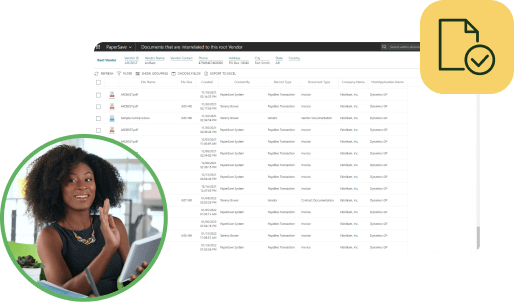
Wadih Pazos
Wadih founded both PairSoft and PaperSave. He is an avid technologist who specializes in streamlining operations and maximizing productivity.
View all posts by Wadih PazosWadih Pazos

Human Resource Executive Online’s Mark McGraw reported on the growing trends in young job applicants, from their digitally managed resumes to the everyday integration of social media into their routine workflow. McGraw detailed the projected increase of Generation Z as a presence in the workplace, and estimates that it will rise from 7 to 30 percent inside of the next five years. For older generations, that will mean adapting to social uses of the Internet, document management software, and a ‘personalized’ approach to getting the job done.
Some businesses have already been confronted by younger employees eager for change. Claire Dunn reported on the Australian, family-owned business The Excel Group for The Age, and detailed how the company was revolutionized by Generation Y member Sonny Saini pushing for a paperless work environment. The proposal to switch to document management software would save the company money, reduce risk of lost information and cut the time it would take to make a client happy, but was initially met with uncertainty from The Excel Group’s Baby Boomer CEO.
“Conceptually, dad agreed but when implementation blew out…there were some tense moments,” Saini explained to The Age. Four years later, the office is completely paperless and has increased the electronic workflow of the business as a whole.
Though some employers remain wary of a generation that was raised alongside developing computer technology, the invasion of Generation Z into the workplace is inevitable, and businesses can begin preparing for the switch and improve the security of their own materials by implementing paperless document management as their younger peers already have.
“If, as an HR team, you’ve been out of touch with college-age students, then you’re missing something. The way they work is different,” Audrey Boone Tillman, executive VP of corporate services at Aflac told Human Resource Executive Online.
If these trends are any indication, electronic document imaging will soon not just be a financially smart business choice, but a necessity.
Automated workflows empower your team to focus on larger, more complex initiatives without having to think about small processes.


Many organizations start with manual receipt handling, fragmented card feeds and slow AP processes. Implement AI agents to auto-capture receipts, route approvals, enable punch-out buys and post to the ERP.
Result: faster batching, fewer errors and cost savings. “This saves us hours every month.”
Many organizations face slow, paper-heavy AP and fragmented procurement that waste time and inflate costs. AI Agents can automate approvals, PO matching and record sync to improve speed, accuracy and control. Client quote: “It freed up hours and made our process reliable.”
Operational drag and rising costs slow growth: teams waste time on manual tasks, misaligned priorities and opaque processes. AI Agents help automate routine work and coordinate actions across teams. “We’ve lost time to repeats and handoffs,” says a typical client.
Companies struggle with manual procurement, fragmented approvals, and costly integrations that slow growth and obscure spend. Our AI Agents streamline requisitions, POs, and invoice matching to cut manual work and improve visibility. “We were wasting time and missing insights,” says a client.

Many teams start with fragmented PO/AP systems, manual matching and delayed financial reporting. Deploying AI agents to automate PO checks, real-time encumbrance tracking and invoice matching reduces processing time and errors, delivering live budgets and faster closes. “Finally, we can see current balances and approve instantly.”
Many companies juggle growing invoice volumes and legacy systems. They struggle with manual processes, compliance gaps and limited headcount. Our AI Agents automate integrations, enforce rules and surface exceptions. The typical outcome: faster closes and measurable ROI. “We stopped chasing invoices.”